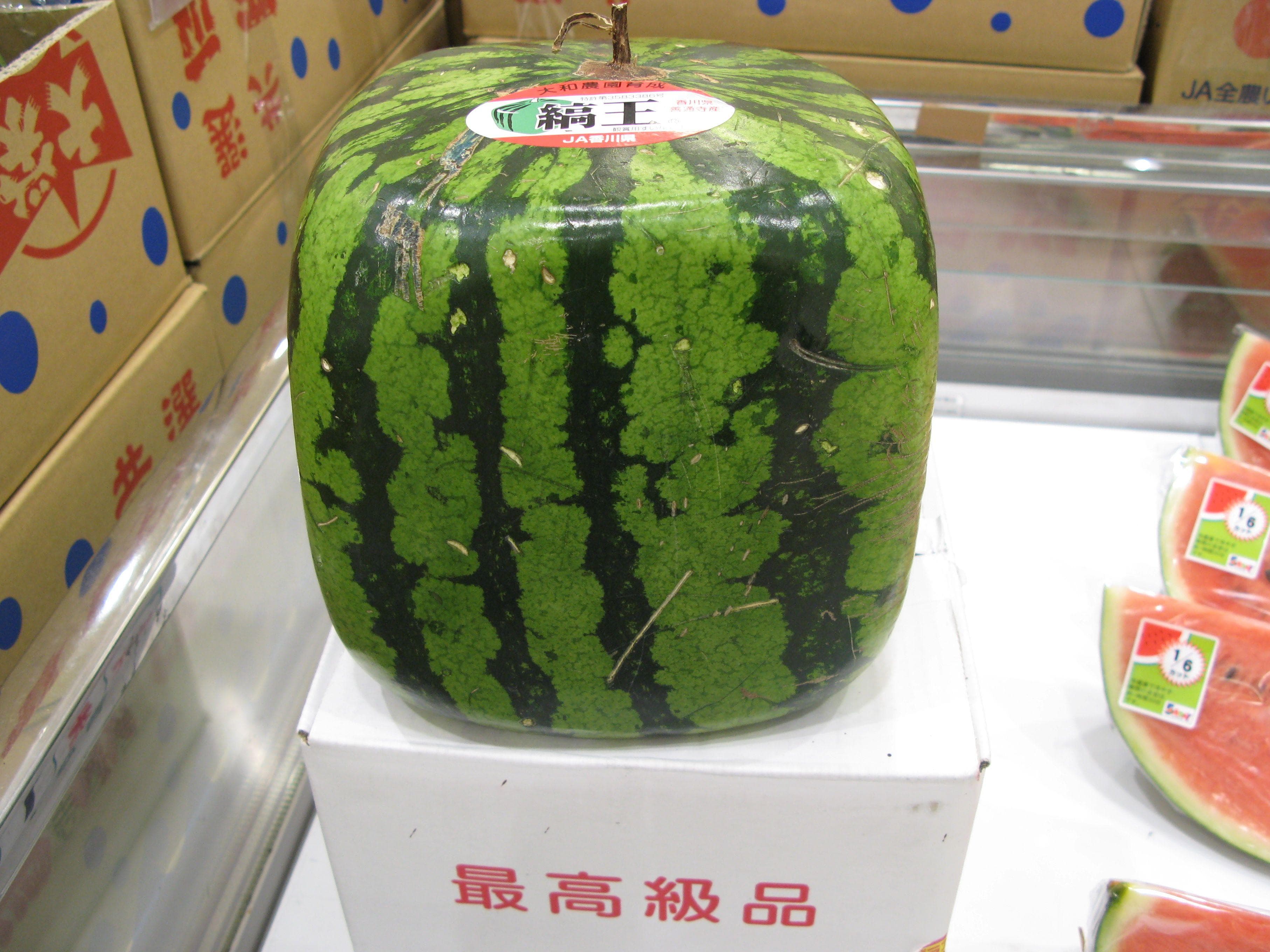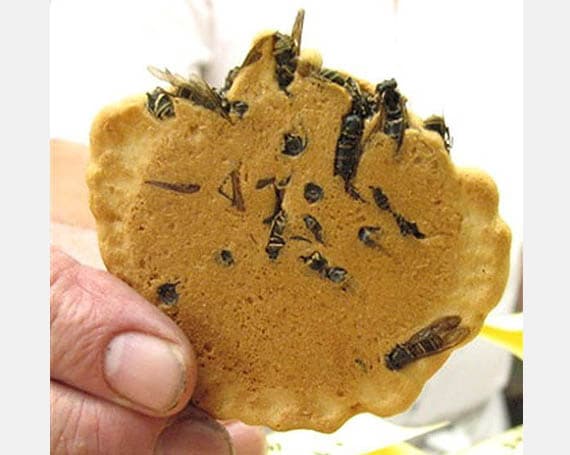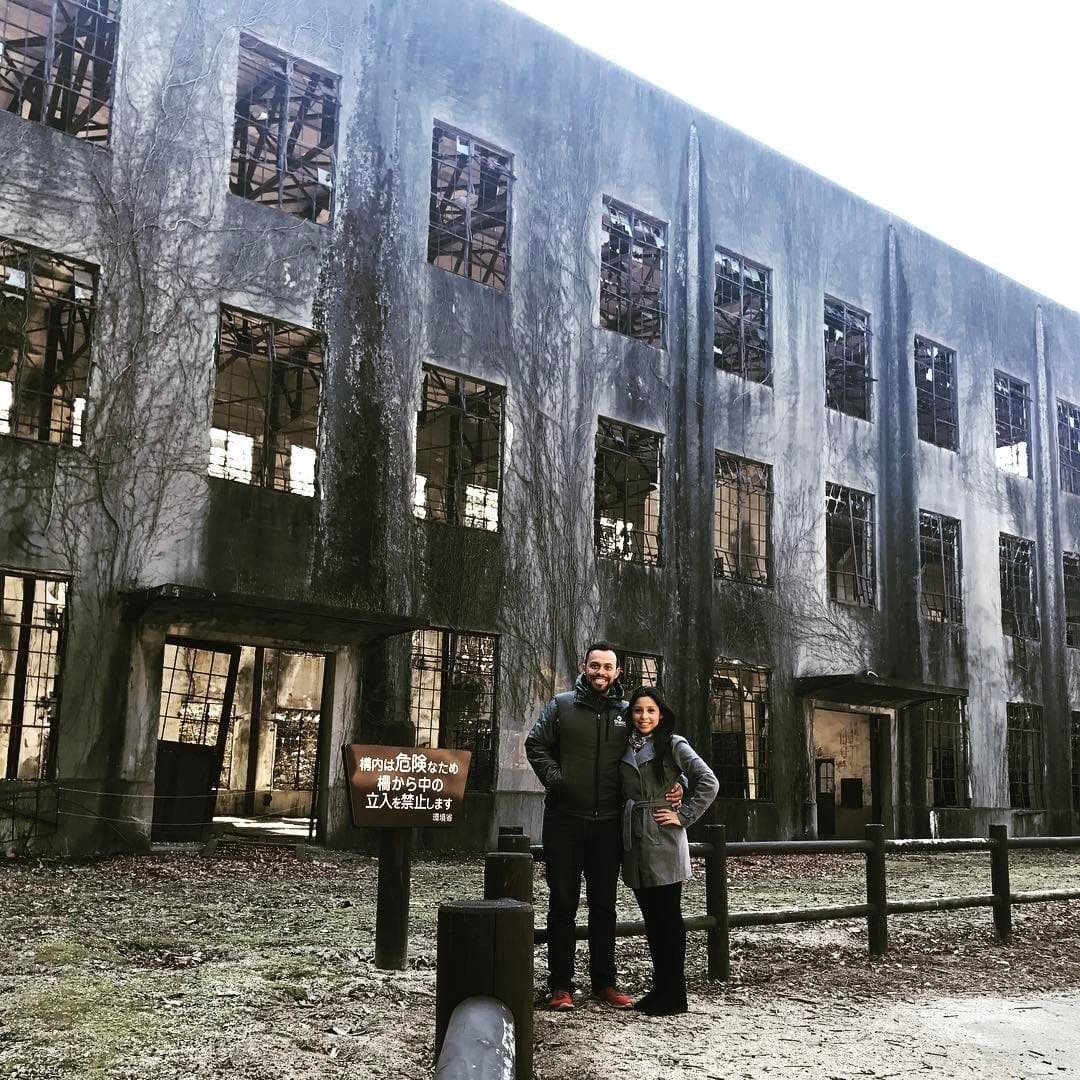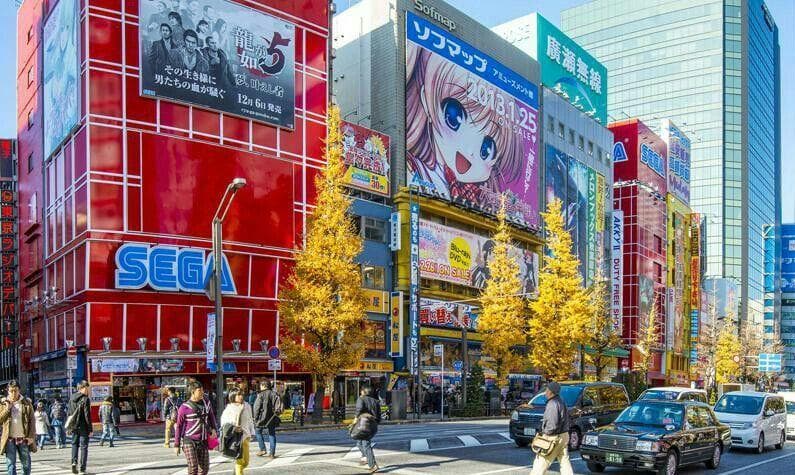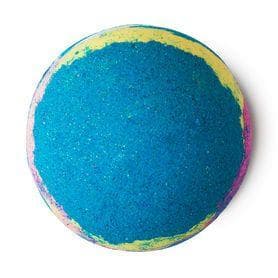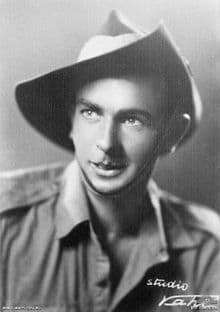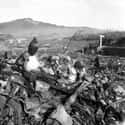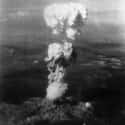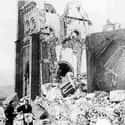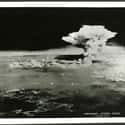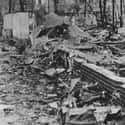-
(#7) Tsutomu Yamaguchi Survived Two Atomic Bombs
Tsutomu Yamaguchi was an engineer on assignment in Hiroshima on August 6. He saw a single B-29 drop a small bomb attached to a parachute and the sky suddenly exploding with a flash of light. He made it into a ditch before hearing a deafening explosion. He was picked up from the ground and spun in the air into a nearby field. Knocked senseless, when he regained consciousness, despite severe burns on his arms and face and ruptured ear drums, he made his way with two colleagues to a train station that somehow was still operating. On August 8, he returned to his wife and child, in his hometown of Nagasaki. After treatment in a hospital, he made it to work on August 9, and while attempting to explain to his disbelieving co-workers the power of the device dropped on Hiroshima, the unthinkable happened.
Suddenly, through the windows of the building, the powerful white flash was visible once again. He hurled himself to the ground as the initial shock wave sent shards of glass and masonry flying through the building. The force of the blast ripped the bandages off of his face and arms. But he survived and rushed home to find out what had happened to his family. Luckily, his wife and son had been out, trying to find ointment for his burns, and were able to take shelter. In an ironic twist, if Yamaguchi had not been injured at Hiroshima, his wife and child might have been at home and been killed in the blast.
Still, after a double dose of radiation, he came close to dying in the next month, suffering from gangrenous wounds, hair loss, and overwhelming nausea. Close to death, Tsutomu Yamaguchi miraculously survived, had two more children, and suffered no major health problems after his recovery. He was unable to discuss his experiences publicly until the 2000s, but he later became a passionate advocate for nuclear disarmament. It is estimated that 165 individuals may have survived both nuclear attacks. Victims of the atomic blasts are known as "hibakusha," but Tsutomu Yamaguchi was the only individual officially recognized as "nijyuu hibakusha," or "twice bombed person," by the Japanese government. He passed in 2009 at age 93.
-
(#1) The Crew Of The Enola Gay Dropped the Bomb And Was Stunned By The Result
When the crew of the Enola Gay dropped the atomic bomb on Hiroshima, no one on board - especially pilot Paul Tibbetts - had any real idea as to the type of weapon they were utilizing. While they had been briefed and shown slides of the test detonation at Alamogordo, NM, it was impossible to convey the size and complexity of the blast that would ensue. At 8:15 a.m. on Monday morning, the plane reached its primary destination and dropped the Little Boy model bomb on the Japanese city.
Because Bob Caron was manning the tail gun of the plane, he would have the best view of the detonation of the bomb and the ensuing blast. He described the experience in a 1985 interview:
I took the welder’s goggles off as soon as the flash was over. It was very shortly after that, I can’t remember the time, when I saw this shockwave. But I didn’t know it was a shockwave. It was just a ring coming out along the ground. It looked like it was on the ground, but actually it was spherical, coming up at us too. It was like dropping a pebble in a still pond. I didn’t say anything. I didn’t know what it was, when it hit the airplane. It hit it pretty hard, because I understand Tibbets yelled, 'Flack!' He thought we got hit by flack. Bounced around in the tail like that, it didn’t bother me that much. But another one came, the ricochet off the ground, and then I called out, 'Here comes another one!' And that hit the airplane.
I still hadn’t seen anything yet, outside of the shock waves. Tibbets called on the intercom again, 'Do you see anything yet?'
I said, 'Nothing yet, Colonel.' Just about that time, the mushroom started coming in view from behind the turret, just the mushroom, the famous mushroom cloud bubbling up, coming up behind the turret. I had been given a K-20, a large camera to take pictures, and I was told to take pictures and then describe what I saw on the intercom. I was kind of busy doing that, and didn’t think too much about it.
It was an awesome sight. I described the mushroom cloud as it grows. Well, it was white on the outside and it was sort of a purplish black towards the interior, and it had a fiery red core, and it just kept boiling up. I think that’s how I described it on the intercom.
Soon, the entire crew could see the mushroom cloud as it grew towards the sky and the immediate fires raging around the core of the blast. In a journal, co-pilot Robert Lewis wrote, "My God, what have we done?"
-

(#4) The Miraculous Survival Of Eight German Jesuits
On August 6, Father Hubert Schiffer, a German Jesuit priest, had just finished Mass and was sitting down to breakfast when the bomb struck: “A terrific explosion filled the air with one bursting thunder stroke. An invisible force lifted me from the chair, hurled me through the air, shook me, battered me [and] whirled me round and round…”
All seven of Father Schiffer's Jesuit compatriots emerged from the blast relatively unharmed, except for glass and wood splinters embedded in their bodies. The building that housed these priests was the only structure still standing in the neighborhood. Less than a mile from ground zero, almost all of the other nearby inhabitants in the vicinity were killed instantly.
Eventually, Father Schiffer was told he would soon develop radiation sickness and die. Although he and the other priests were frequently examined for any disease or atomic side effects, all of these men lived for at least several decades following this experience. Hubert Schiffer passed in 1982 at the age of 63.
-
(#5) Eiko Taoka And The Death Of Her Young Son
Eiko Taoka, 21, was in a streetcar when the bomb hit Hiroshima and she was tossed outside onto the street, still able to hold on to her son:
I held [my son] firmly and looked down on him. He had been standing by the window and I think fragments of glass had pierced his head. His face was a mess because of the blood flowing from his head. But he looked at my face and smiled. His smile has remained glued in my memory. He did not comprehend what had happened. And so he looked at me and smiled at my face which was all bloody. I had plenty of milk which he drank all throughout that day. I think my child sucked the poison right out of my body. And soon after that he died. Yes, I think that he died for me.
Taoka's son died of radiation sickness on August 28. Out of an estimated 100 passengers, only 10 occupants of the streetcar, including Taoka, were known to have survived.
-
(#2) Eizo Nomura, One Of The Survivors Closest To The Blast
Eizo Nomura, 47, was a municipal employee looking for documents in a basement when the bomb detonated only 500 feet away. He escaped through thick fire and smoke and was the only occupant of the building not killed by the blast or subsequent radiation poisoning.
He eventually wrote a memoir about his experience and recalled:
Outside, it was dark because of the black smoke. It was about as light as night with a half-moon. I hurried to the foot of Motoyasu Bridge. Right in the middle and on my side of the bridge I saw a naked man lying on his back. Both arms and legs were extended toward the sky, trembling. Something round was burning under his left armpit. The other side of the bridge was obscured by smoke, and the flames were beginning to leap up.
Although he survived, Nomura experienced near fatal symptoms of radiation sickness, including high fever, diarrhea, and bleeding gums. He passed in 1982, aged 84.
-
(#6) Dr. Michihiko Hachiya Had No Idea Why He Was Naked
Like all survivors of the atomic bomb, Dr. Michihiko Hachiya remembered a flash of light, darkness in a matter of seconds, and barely being able to escape into the garden of his house. Profoundly weakened, he paused to regroup and suddenly realized his undershirt and underwear were gone. He was completely naked, with no idea what had caused the situation.
All over the right side of my body, I was cut and bleeding. A large splinter was protruding from a mangled wound in my thigh, and something warm trickled into my mouth. My cheek was torn, I discovered as I felt it gingerly, with the lower lip laid wide open. Embedded in my neck was a sizable fragment of glass which I matter-of-factly dislodged, and with the detachment of one stunned and shocked I studied it and my blood-stained hand.
He started yelling for his wife, who finally emerged from the wreckage of their home also stunned, her clothes bloody and torn. They both decided to try and make their way to a hospital as quickly as possible, Hachiya still naked. Exhausted after only a few blocks, the doctor told his wife to leave him and go ahead, he couldn't make it any further. She was as badly hurt as he was and he told her they had no choice, she should get to the hospital and send someone to help him.
Yaeko-san looked into my face for a moment, and then, without saying a word, turned away and began running towards the hospital. Once, she looked back and waved and in a moment she was swallowed up in the gloom. It was quite dark now, and with my wife gone, a feeling of dreadful loneliness overcame me.
Hachiya's wound began bleeding again and he lost consciousness on the side of the road. When he awoke, he decided to make one more agonizing attempt to reach the hospital. Slowly and painfully, passing people in unimaginable conditions, he finally made it to the hospital's front door. He and his wife survived, and he eventually published a diary of his experiences during and after the atomic bomb was dropped on Hiroshima.
New Random Displays Display All By Ranking
About This Tool
In August 1945, the United States dropped two atomic bombs on Japan one after another, which was the only two nuclear strikes in the world so far. There has always been a great controversy as to why the United States dropped an atomic bomb on Japan. Such a terrible atomic bomb explosion caused great panic and trauma to ordinary Japanese people.
More than 20 million civilians were killed or disabled in high temperatures and strong light caused by atomic bombs, and they were still suffering from the threat of diseases caused by nuclear radiation for decades. The random tool shares 12 stories of life after the US dropped atomic bombs on Japan.
Our data comes from Ranker, If you want to participate in the ranking of items displayed on this page, please click here.

